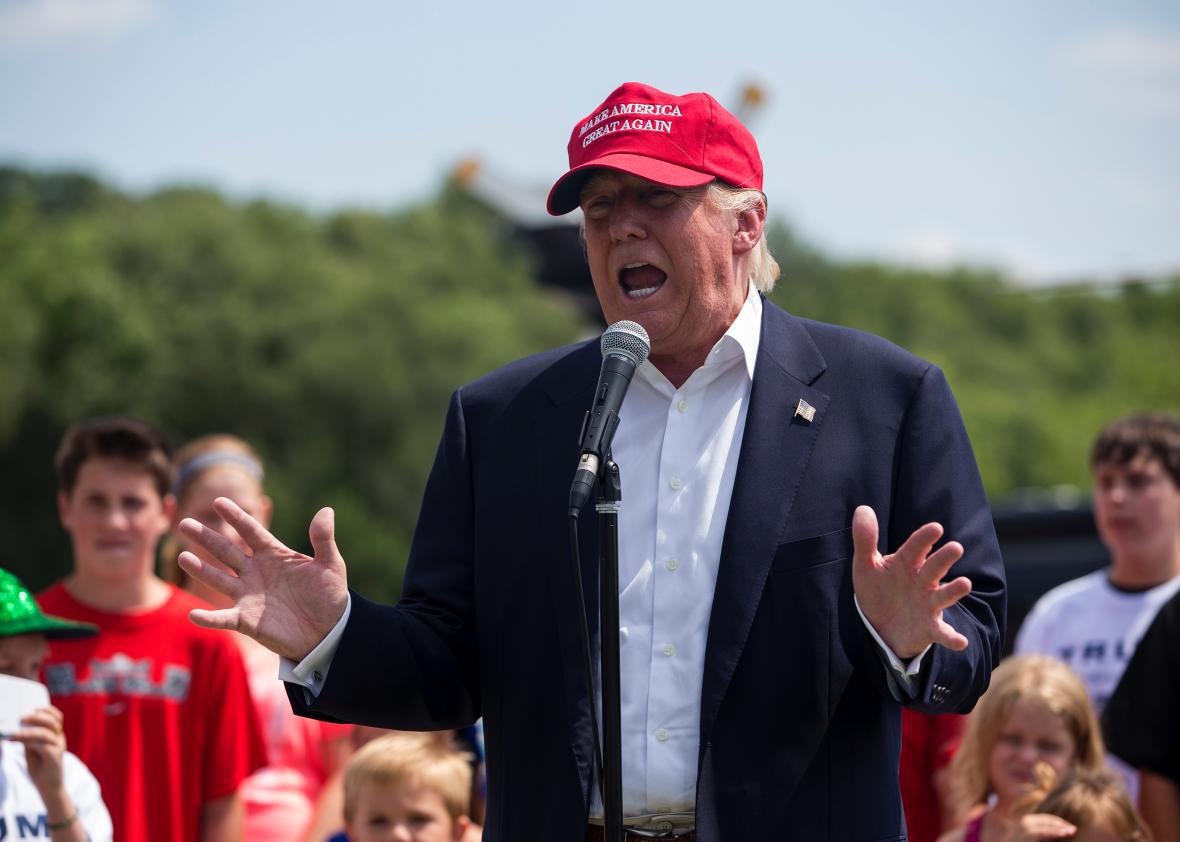As of late, logorrheic reality television star Donald Trump has managed to find a new target on which to hock gobs of populist resentment, and for once, it’s a pretty reasonable one. “The hedge fund guys are getting away with murder,” he said on CBS’s Face the Nation on Sunday, reiterating comments he had made to Time magazine. Of course, the issue was taxes. “They’re paying nothing and it’s ridiculous. I want to save the middle class,” Trump said. “The hedge fund guys didn’t build this country. These are guys that shift paper around and they get lucky.”
Per usual with Trump, it’s a bit of an exaggeration to say hedge funders are paying “nothing” to the IRS. But as Slate’s Daniel Politi noted over the weekend, Trump was likely talking about the carried interest rule, the loophole that hands private equity, venture capital, and a some hedge fund managers a huge tax break by treating most of their earnings as capital gains rather than normal income. Long controversial, the rule was the subject of a lot of discussion during the 2012 presidential election thanks to Mitt Romney, who as a former private equity baron benefited from it mightily.
A quick review of how carried interest works: Private equity and hedge fund big shots are compensated based on what’s known as a “two and twenty” rule. First, they earn a management fee equal to 2 percent of the investments under their watch. That money is guaranteed no matter how their portfolio fares, and is taxed like ordinary income, at a top rate of 39.6 percent. But on top of that, managers also get a 20 percent cut of their fund’s profits. That’s called carried interest, and today it’s taxed as investment income, with a top long-term capital gains rate of 23.8 percent (once you include Obamacare’s surcharge on investment earnings). That break is, obviously, worth quite a bit of money to many a financier (though, contra Trump, hedge funds don’t benefit from it quite so much as commonly assumed, because they frequently don’t hold assets long enough to qualify for the long-term capital gains rate in the first place).
You can find some very involved justifications for this quirk of the tax code. But most reasonable people, including some conservative economists like Harvard’s Greg Mankiw, admit it’s pretty obviously unfair. Hedge fund and private equity founders do often put a bit of their own capital on the line. But mostly, they’re being paid for their labor as managers. So, it makes sense to hit them with the same tax rate that would apply to any other kind labor, not a lower rate meant to encourage more investment. Some estimates have suggested that doing so could raise as much as $17.7 billion over a decade, which, while perhaps not a boatload of money, isn’t nothing.
In the end, the policy is probably less interesting here than the politics. Republicans have a somewhat torn relationship with the carried interest rule: Some defend it thanks to their sympathy for Wall Street or out of an aversion to raising any kind of taxes while others would be happy to see it go, because they feel the break primarily benefits wealthy Democratic donors (there’s a reason New York Sen. Chuck Schumer supports it). Given that he’s basically completely unencumbered by the need to raise funds or adhere to strict conservative ideology, Donald Trump is free to make pretty much whatever gestures he thinks will rev up the GOP base. And those voters, it’s worth remembering, are not especially sympathetic to the desires of Wall Street financiers (during the financial crisis, Republicans loathed the bank bailouts even more than Democrats did). If nothing else, the Donald is yet again giving us a little peek at what populist conservatism might look like if neither money nor party dogma mattered at all in elections.
